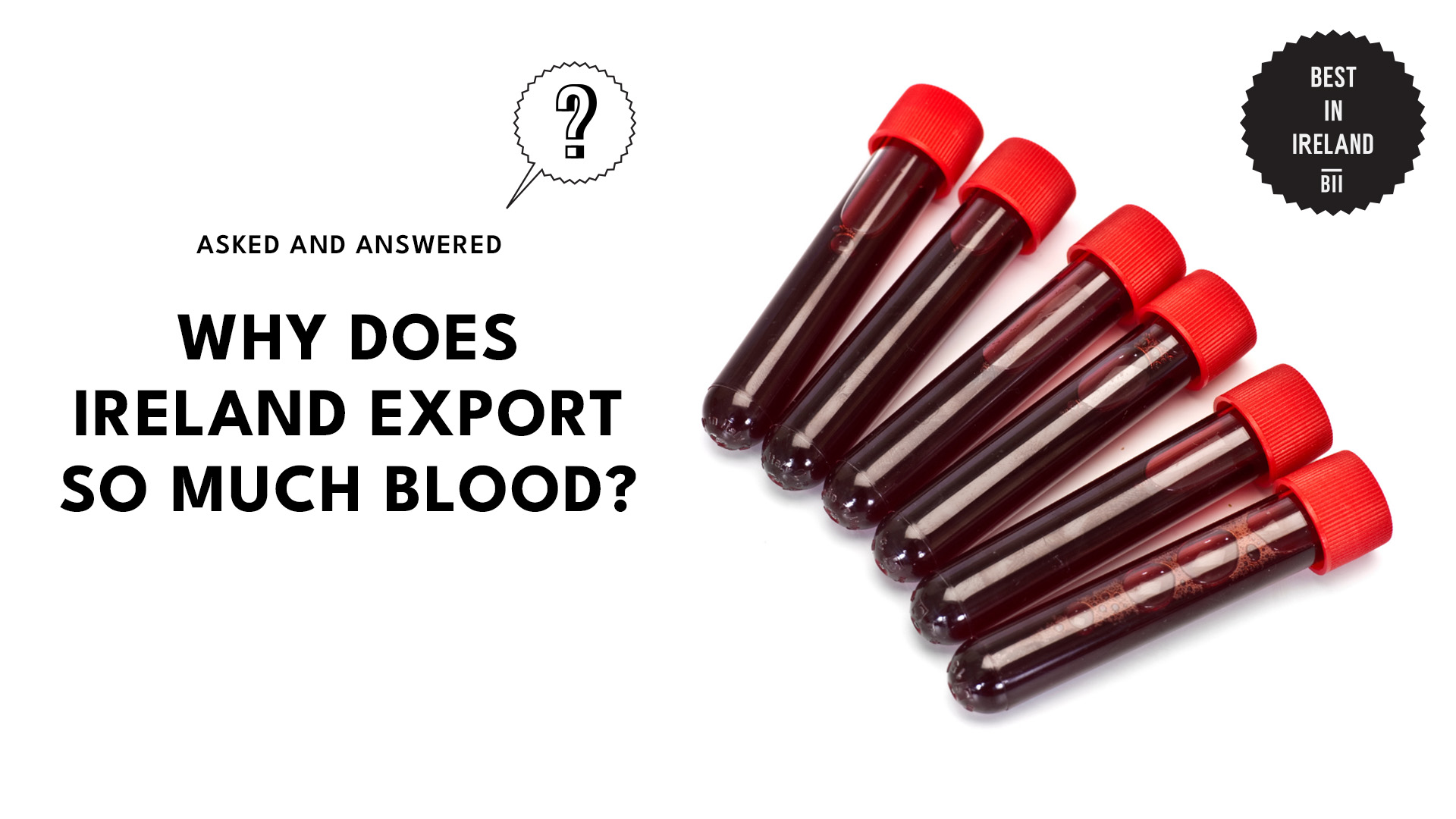Why Does Ireland Export So Much Blood?
So you’ve heard that Ireland exports so much blood. We get it – it can be a weird (yet also fun or cool) fact for some locals or tourists attracted to Irish culture.
But you can satisfy your curiosity with us! Learn about Ireland’s significant presence in the global blood market in detail below.
Why does Ireland export a large amount of blood?
Ireland exports a large amount of blood for several reasons, such as to meet overseas demand, support research and development, and assist in emergency response.
In fact, Ireland exported $36.5 billion worth of blood, vaccines, antisera, toxins, and cultures in 2021. This made Ireland the 5th biggest exporter of these substances globally.
Let’s further delve into the reasons behind Ireland’s blood exports below.
To Meet Overseas Demand

Ireland exports a lot of blood to meet international demand. As a responsible member of the international community, Ireland recognises the importance of ensuring a sufficient and safe blood supply worldwide.
In other words, Ireland exports blood to satisfy the global thirst for it, just as the famous Irish pubs serve pints to satisfy the local “thirst” for a different kind of red.

The Irish export specific blood components or derivatives to other countries that require specialised products for specific medical conditions.
These items include clotting factors to stop bleeding, immune globulins to fight infections, and plasma-derived products to use for physical therapies and other treatments.

By exporting blood to other countries, we believe Ireland can contribute to the continuous improvement of blood collection, testing, and distribution processes worldwide.
Participating in international blood donation initiatives also allows Ireland to stay updated on best practises and advancements in the field. We think this collaboration fosters innovation, ultimately benefiting patients in Ireland and around the globe.

Through these blood exports, we think the Irish can sleep better at night. Because, in our opinion, being part of the international blood network may provide Ireland with an added layer of security.
Should the country face a sudden decline in its own blood supply due to unforeseen circumstances, we feel it can rely on reciprocal assistance from other nations that it has helped before – it’s a win-win situation!
Altogether, this collaborative approach likely ensures that every country has access to life-saving blood products when they’re most needed.
To Support Research and Development

Ireland exports blood because donated blood is a valuable resource for continuous scientific research, including the development of new treatments, therapies, and diagnostic techniques.
By sharing blood samples and products with other countries, Ireland contributes to the progress of medical knowledge and helps improve healthcare. This can help people with cancer, heart disease, autoimmune diseases, and the like.
For us, these types of research can lead to exciting breakthroughs that have the potential to save lives and make a positive impact on the world.
To Strengthen Emergency Response

During global health crises or natural disasters, Ireland contributes to international relief efforts by providing blood donations or blood products to affected regions.
We believe this type of support is crucial to saving lives and assisting healthcare systems under strain.

In the interconnected world we live in, emergencies and natural disasters can strike any corner of the globe. During such challenging times, the demand for blood products surges, overwhelming local healthcare systems.
This is where Ireland’s blood exports come into play. By sharing its surplus blood resources, Ireland can offer a helping hand to countries grappling with critical shortages.

